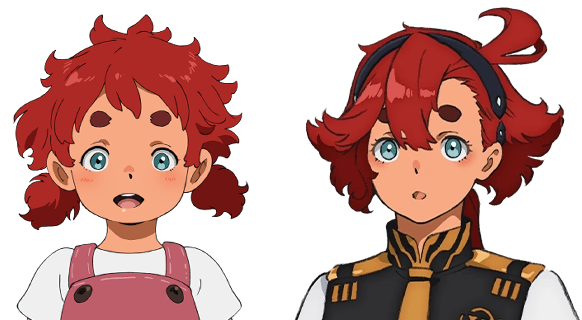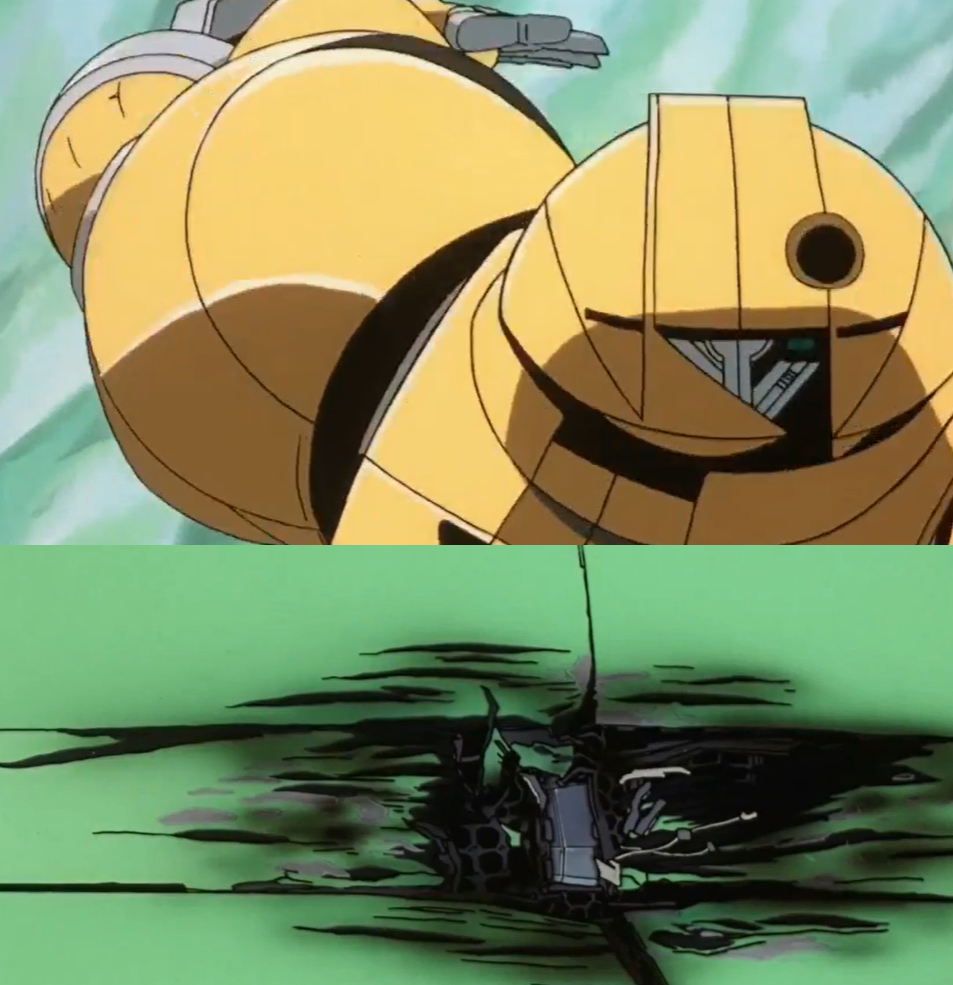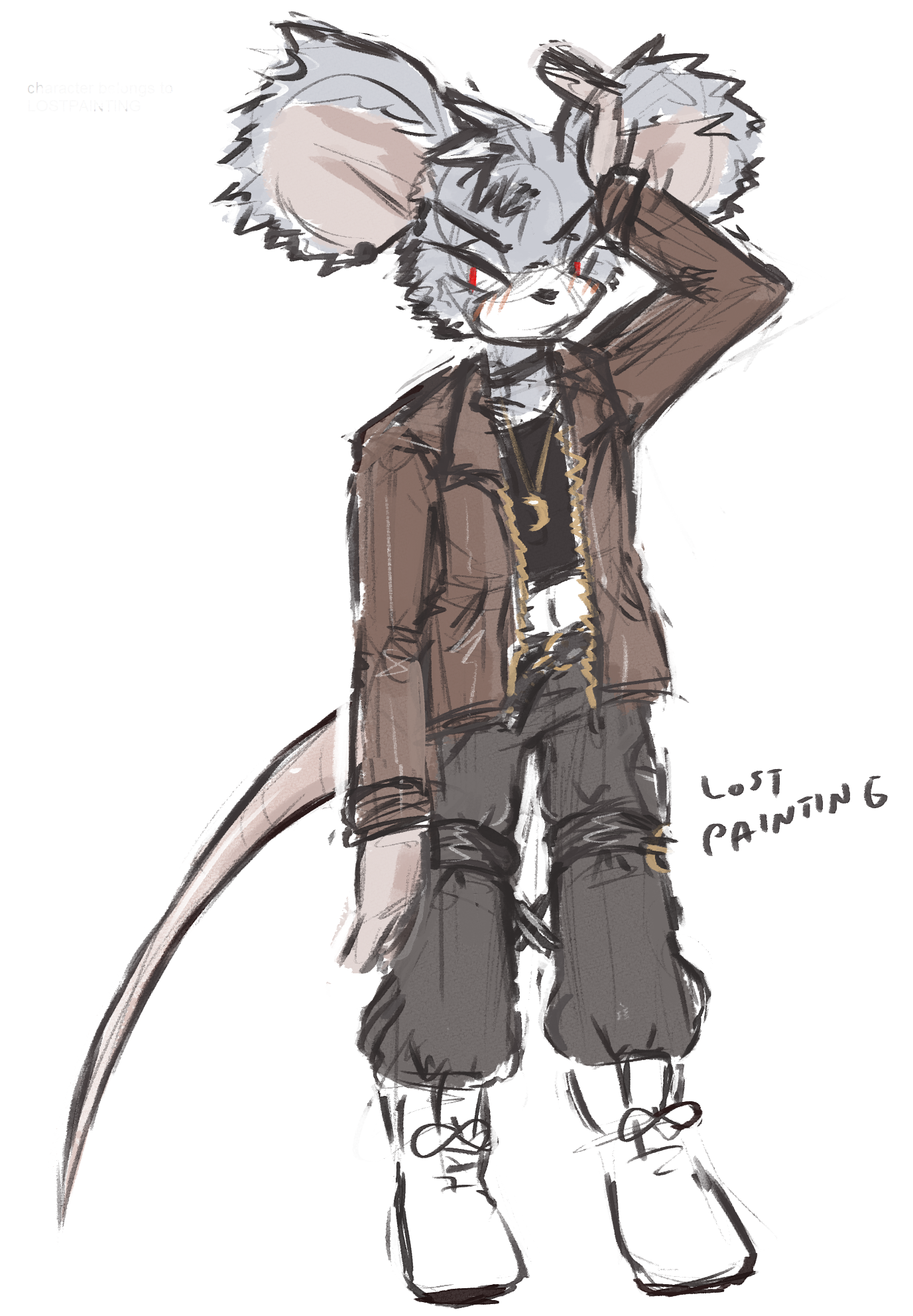Mobile Suit Gundam: the Witch from Mercury Season One Review
I went into Mobile Suit Gundam: the Witch from Mercury - which I will be shortening from here on as G-Witch - with high expectations, due to already having been a fan of screenplay writer Ichirō Ōkouchi's contributions on Turn A Gundam, Overman King Gainer, and Eureka Seven. My expectations were not only met with this first season, but thoroughly exceeded, and it left me wanting more.

G-Witch's season finale ending stinger was perfectly emblematic of everything the series has been setting up so far, and cemented to me that this has the potential to be one of my new favorite mecha anime once it properly reaches its conclusion. I genuinely find myself surprised at the amount of people who expected this series to stay wholesome with low stakes duels throughout the entire series duration, as the series going this route has been set up subtly the entire time. The first material released for G-Witch was even prologue featuring four-year-old taking control of a mech and shooting down combatant soldiers, obviously completely lacking a grasp of what she's doing. It perfectly paralells with Suletta's reaction of almost complete ignorance of having just killed for the first time to protect Miorine.
My biggest criticism with G-Witch as I was watching it weekly, is that it felt like it was spinning its wheels longer than other mechas I've seen to get into the point. However, having now finished the first season, I do now think what I initially regarded as spinning its wheels was the correct call for this stinger scene to really make an impact. For nearly every moment of her life leading up to her finally snapping, Suletta has been thoroughly groomed by her mother to be the perfect tool for revenge, with even Aerial commenting on it in the supplementary story for G-Witch's prologue. Everything about Suletta's life, down to Suletta's meeting and developing a relationship with Miorine, has just been a ploy set up by Prospera to get at Deiling. The tone and pacing on the surface was deliberate to allow for these facts to to set in, as was the release of the supplementary story with the prologue. As the anime was focusing on the lower impact duels and academic life on the surface, it was interspersed with plenty of opportunities to see things such as the depths of Prospera's manipulativeness. The only reason Suletta was even able to go to school as she had been expressing interest in doing since age nine, is because it would further Prospera's revenge plot on Deiling Rembran.
The sheer contrast in tone between the prologue, to the supplementary story, to the full anime is why I decided to stick with this series, instead of dropping it early on. Like, when a series has not only a character whose design is as distinctive and immediately recognisable as the prologue's Ericht Samiya suddenly going by a completely different name once the series properly starts with no further explanation or acknowledgement - but also her mother and her mech - you simply have to see whatever is being set up through, even if you can't fully ascertain in the beginning of the anime if it actually end up being delivered upon in a satisfying way.

There's so many questions you have to ask yourself as you watch, and the show allows you plenty of time for you to ask them. Why is Ericht Samiya suddenly going by a new name? Why does her mother now look entirely different, and has suddenly taken on the same revenge plot on Deiling as the prologue's Cardo Nabo? Why does Prospera lie about Aerial not being a Gundam, and suddenly reveal the fact it actually is? Why does Deiling have such seemingly inconsistent character motives? Why does Prospera only refer to Aerial as her daughter, and not Suletta? Why does Suletta not have the same markings on her skin when activating the Gundam's Permet as not only the other pilots, but speficically different from Ericht as well? Why does Suletta not recognise footage of Nabo, despite having met her prior? Why does the timeline of events between the prologue and the full series not match up at all? Why does Prospera suddenly come onto the sixteen-year-old girl she had specifically set her daughter up with? Watching the series and thinking upon all the questions you ask yourself thoroughly recontextualize the prologue, and it feels like you're rewarded for being observant, especially to Prospera's manipulation tactics. That's why it starts so slow and slice of life-adjacent at first. To not only give you plenty of time to piece these details together, but also to catch you offguard once the series hits the exact moment you can see the complete loss of Suletta's near-childlike innocence.
Which brings me back to the palm strike. Everything regarding that ending stinger is simply remarkable to me, and the initial reacion it ilicited upon my first viewing was literally making me sick to my stomach. I believe the last anime I watched where I had a reaction this strong was Eureka Seven, with a scene executed very similarly to this - down to the series' teenaged deuteragonist breaking down upon seeing a disembodied limb. This is how I should feel when watching an anime featuring teenagers forced to fight in self defense after a terrorist invasion that was specifically set up by the protaonist's mother, and that's why I so thoroughly believe G-Witch hit its mark so hard here.
I thoroughly love the execution of it as well, with Suletta reflexively deciding to swat at this soldier threatening Miorine as if he were just a fly bothering her. At this point, I almost consider this palm strike scene to be Ōkouchi's trademark, due to this matter of execution also showing up in Turn A Gundam, carried out by the series' "Char clone", Harry Ord. The fact Suletta's actions could be compared at all to characters paralelling Char Aznable makes this scene all the more disgusting to think about, especially when you consider the character actually taking Char's role is her own mother. There were so many other potential ways of executing this that feel like it would have dignified this soldier's life much more thoroughly, such as slapping him away or smacking the ground next to him as a threat. Even though the soldier would almost certainly have still died from being directly slapped away from a mech, it would still feel more like Suletta was regarding him as a human being. Which is why I don't think either of those two methods of dealing with this threat would have had remotely the same impact.
Comparing this scene again to Harry Ord's execution of Meme Midgard just further drives it home. In the equivelant scene in Turn A Gundam, there's so little fanfare to the act of the kill. Just a windup, then showing that where Meme was standing is now just a hole in the ground, and then the scene cuts away with little-to-no acknowledgement of it happening afterwards. You can hardly even feel for the guy, he was marked-for-death since introduction, and honestly lived twenty episodes longer than I actually anticipated. It contrasts so heavily to Suletta executing an unnamed soldier who had less than a minute of on-screen time prior to dying. It's not quite how he died that makes it so gut-wrenching, but how it was presented. It does not cut away, you have to sit with the same horrific realization that Miorine is having, that Suletta just killed. You have to sit with the tension of Suletta's completely dissonant reaction, watching the framing change to accentuate the disembodied limb hitting Miorine, to Suletta's landing in the blood, to focusing solely her bloodied palm, back to seeing Suletta reaching out with a smile as if nothing happened.

Suletta has been groomed to become this so thoroughly, that you have to question if this soldier being another human is even crossing her mind anymore. You could easily imagine there's only one thing running through her head in that specific moment: protecting her bride. It's so difficult for me to fully blame Suletta at all for becoming this. She's never been able to be her own person, not even knowing what something as basic as school could be like until age seventeen. It's easy to imagine her inner morality is completely shaken at this point, and all it finally took was one final push from Prospera to actually kill someone. On the other hand, I can't blame Miorine for her reaction, either. She literally watched the soft-spoken girl she's slowly falling for brutally kill someone in front of her, just because she happened to be in the wrong place at the wrong time. It's so difficult to imagine where the series could possibly go from here.
One thing you can tell for certain, however, is that Miorine and Suletta's relationship going forward is going to be entirely different once season two begins, and I find that so fascinating. As a LGBT person myself, I'm so enchanted by a mainstream series with such a massive following having two almost-certainly LGBT leads with a relationship as thoroughly complex as this. I find it so cathartic seeing this type of horrific scene being explored with two women, just for the sake of actually feeling like a genuine exploration of this concept. Either of the two easily could've just been a boy, and as result it just as easily could've been a heterosexual couple as the two main leads exploring this, which while this still would have been very interesting, it would also feel more expected. Instead, they used the tall, broad-shouldered, yet still beautiful and quiet Suletta to pair with the more traditionally feminine, yet still emotionally strong and hotheaded Miorine. Up until now, it felt like we were getting to see their contrasting traits slowly blend in to each other to complement the other more. What started as a ploy set up by her mother on Suletta's end, and the simple act of marriage solely being a means to escape her father to go to Earth on Miorine's, slowly turned into a genuine care for each other. This is why it stings so badly to watch the exact turning point where their relationship will never be able to return to the comfort they had with each other even an episode prior.
Part of me is still obviously a bit worried that this will end in a way to be a condemnation of them being a same-sex couple, but I find that worry far more outweighed by how genuine it's felt so far. I can only hope they stick the landing with it continuing to feel genuine from here. After all, we know this isn't Suletta's true nature, it's all Prospera's influence. We as the viewer know the extent of what Suletta has had to endure, perhaps more thoroughly than Suletta herself realizes. Miorine, while still not having a full grasp of it, has already had a glimpse of Prospera's true nature already. I feel that going from here, it will have to be Miorine that realizes the extent of it, and saves Suletta from this cycle of pain.
All of this is why I feel so strongly confused at people's surprise that a scene like this could even potentially happen, it feels like it comes from a place of willfull ignorance at this point. This is Yoshiyuki Tomino's Mobile Suit Gundam series, after all, whose works literally are generally divided with what gets the moniker of "'kill 'em all' Tomino" and "happy Tomino". Even the ones in the latter category still manage to be explorations of the horror of war, similar to what's being achieved in G-Witch. However, even if you were going in somehow entirely blind to the legacy of Gundam, there were so many opportunities in the prior twelve episodes to realize this series will not remain happy, that I almost have to wonder if people are even watching the same show I was.
In the end, my only regret with having watched G-Witch is not watching Code Geass prior.
